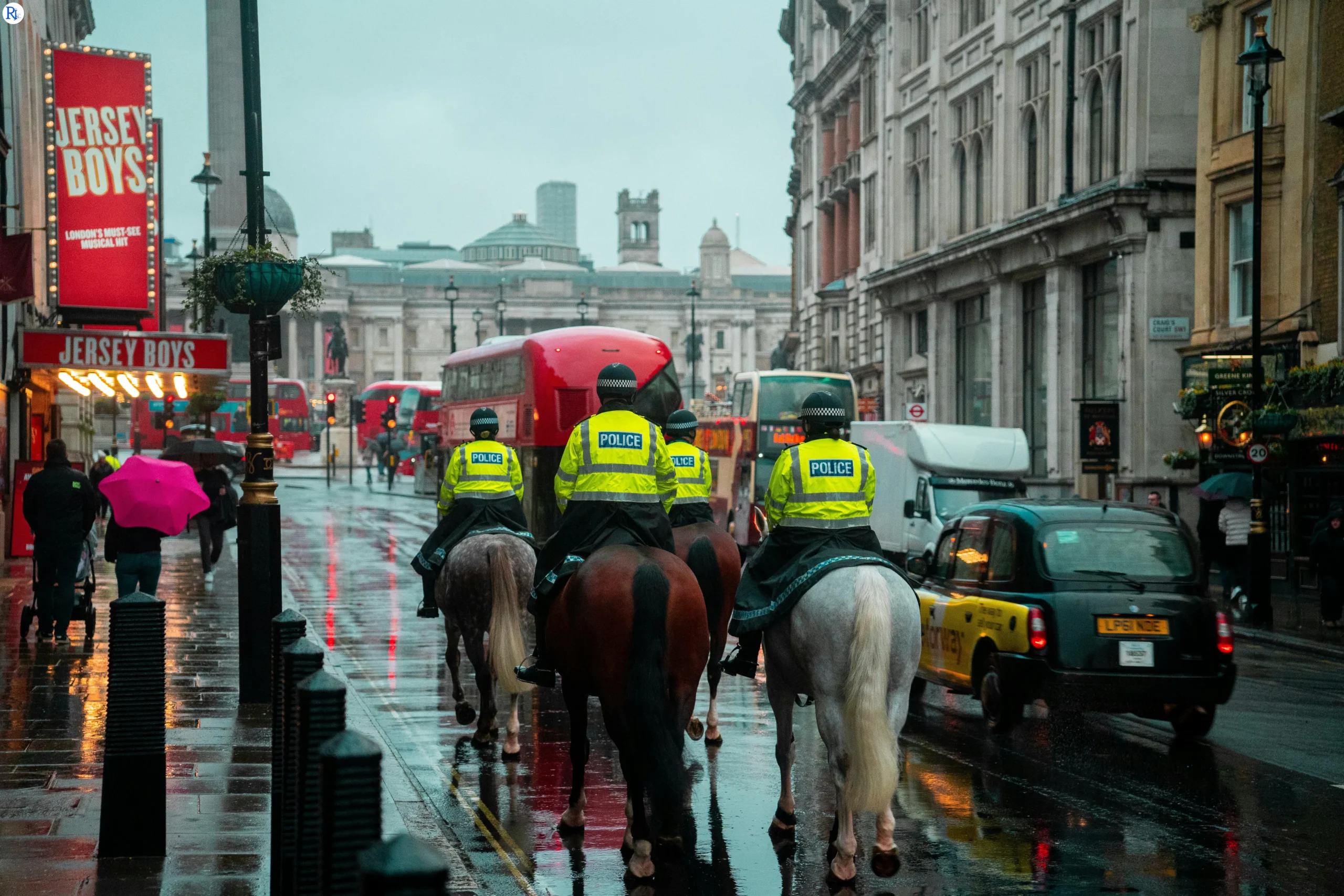Police forces across England are gearing up for a tense weekend as far-right groups plan a series of protests against asylum seekers. With anti-racism activists organising counter-demonstrations, authorities are implementing restrictions in various areas to maintain order. The protests, set to occur in over a dozen towns and cities, have raised concerns about potential clashes and public safety.
The events are scheduled to begin on Friday, with locations such as Norwich already seeing heightened police presence. Officers will be deployed to monitor at least 12 other towns and cities, aiming to prevent any escalation into violence. This preparation comes as the country grapples with ongoing debates surrounding immigration and asylum policies.

A Weekend of Heightened Tensions
The planned protests are expected to draw significant attention, with both far-right groups and anti-racism activists mobilising supporters. The far-right factions are protesting against what they perceive as an uncontrolled influx of migrants, while the counter-protests aim to stand against racism and xenophobia.
Local authorities in Norwich have already enacted restrictions to curb potential unrest. These measures include designated protest zones and limitations on the movement of demonstrators. Similar arrangements are anticipated in other areas, with police forces coordinating efforts to ensure public safety.
The protests highlight deep-seated divisions within the UK regarding immigration. Recent government statistics indicate a rise in asylum applications, fuelling debates about the nation’s capacity to accommodate new arrivals. This has become a flashpoint for far-right groups, who argue that the current policies threaten local communities.
Police Strategies and Public Safety
To manage the situation, police forces have devised comprehensive strategies focusing on de-escalation and maintaining peace. Officers are receiving specialised training to handle potential confrontations, with an emphasis on dialogue and negotiation.
“We are committed to ensuring the right to peaceful protest while safeguarding public order,” a police spokesperson stated. “Our priority is to facilitate lawful demonstrations and prevent any form of violence.”
The deployment of additional officers is part of a broader strategy to deter potential disturbances. Authorities have also engaged with community leaders and protest organisers to foster communication and reduce tensions. This collaborative approach aims to minimise the risk of clashes and ensure the safety of all participants.
Community Reactions and Concerns
The upcoming protests have sparked varied reactions across communities. Many residents express concern about the potential for violence, urging authorities to take decisive action to prevent disorder. Local businesses are also preparing for disruptions, with some opting to close temporarily as a precaution.
Community leaders have called for calm and dialogue, emphasising the importance of addressing the root causes of the tensions. “We need to engage in constructive conversations about immigration and integration,” said a representative from a local advocacy group. “Divisive rhetoric only exacerbates the challenges we face as a society.”
The protests also underscore the broader societal debates over national identity and multiculturalism. As the UK navigates these complex issues, the events of this weekend may serve as a barometer for public sentiment and policy direction.
The Role of Social Media
Social media platforms have played a significant role in the mobilisation of both protest and counter-protest groups. Organisers have utilised these channels to coordinate logistics and rally support, while authorities monitor online activity to pre-empt potential flashpoints.
Experts warn that the rapid dissemination of information via social media can both aid and hinder efforts to maintain order. While it facilitates communication, it also poses challenges in controlling the spread of misinformation and inflammatory content.
Authorities are urging the public to rely on verified sources for updates and to remain vigilant against false narratives that may incite unrest. This balanced approach is crucial in navigating the digital landscape and its impact on real-world events.
Looking Ahead
As England braces for a weekend of protests, the focus remains on ensuring peaceful demonstrations and safeguarding public safety. The outcome of these events could influence future discussions on immigration and community relations, shaping policy and public perception.
Authorities are hopeful that the measures in place will prevent any escalation and that dialogue will prevail over division. The coming days will test the resilience of both law enforcement and communities, as they strive to uphold democratic values amidst challenging circumstances.

